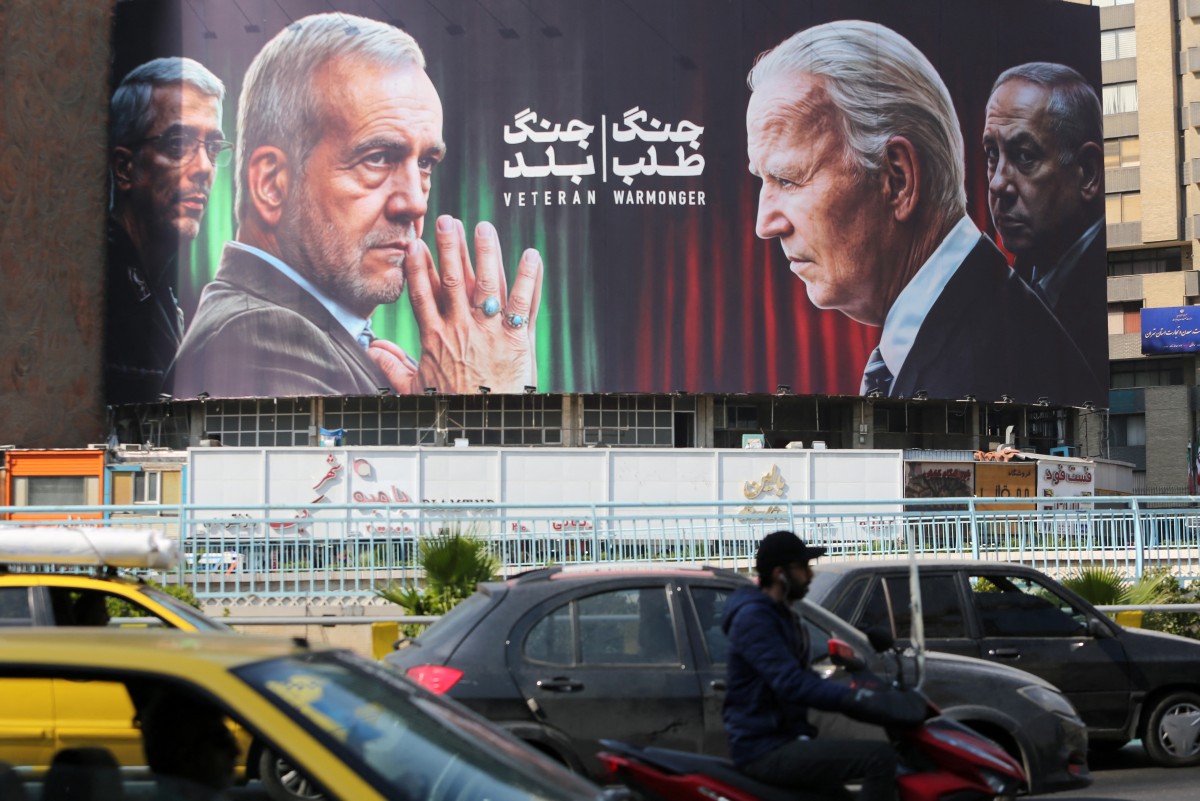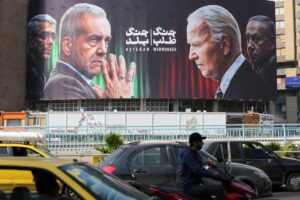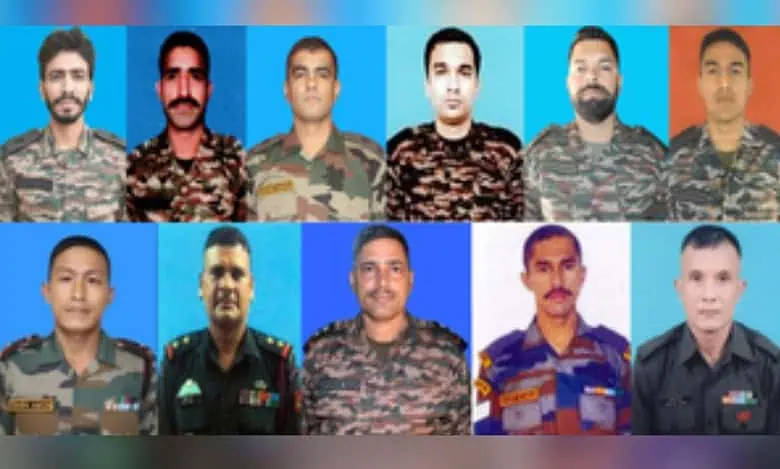
Iran Vows Response to Israel
Iran Asserts Defensive Stance Amidst Tensions with Israel
Tehran has emphasized that it does not seek war with Israel but is prepared to defend itself following recent airstrikes. The Iran-Israel conflict escalation has taken a new turn after Israel targeted what it described as military facilities in Iran on Saturday. These strikes came as a direct retaliation to Tehran’s earlier ballistic missile attacks.

Iran’s Response to Israeli Strikes
Iranian President Masoud Pezeshkian, in a public statement on Sunday, addressed the situation, vowing a measured response while stressing a desire to avoid a full-scale conflict. He stated, “We do not seek war, but we will defend the rights of the people and the nation, and we will give an appropriate response to the Zionist entity’s aggression.” The Iran-Israel conflict escalation has put both countries on high alert, with Tehran warning that any continuation of Israeli actions could lead to further instability in the region.
Accusations Against the United States
In his remarks, President Pezeshkian also accused the United States of playing a role in escalating tensions. He claimed that the US has been “provoking the regime into committing these crimes,” referring to Israel’s actions against Iran. The Iran-Israel conflict escalation has drawn international attention, with many fearing that further provocations could spiral into a larger regional crisis.
Iranian Foreign Minister’s Statement
Iran’s Foreign Minister, Abbas Araghchi, echoed the president’s sentiments, highlighting that while Iran does not aim for war, it will not shy away from responding to any attacks. “We are not seeking war, but we will respond to any aggression by Israel at an appropriate time,” he was quoted saying by Iran’s state news agency IRNA. The Iran-Israel conflict escalation has been a matter of concern for global powers, prompting diplomatic efforts to encourage restraint from both sides.

Israel’s Position on Recent Strikes
In contrast, Israel has defended its actions, claiming that its strikes on Saturday targeted specific military assets in Iran. According to reports from CNN, Israel’s Chief of the General Staff, Herzi Halevi, warned that any threat against his nation would be met with military force. He mentioned that Israel had “used only a portion” of its military capabilities during the strikes, leaving room for potential further actions if the Iran-Israel conflict escalation continues.
Halevi emphasized Israel’s readiness to handle “all scenarios in every arena” as tensions simmer between the two countries. A source familiar with the Israeli government’s strategy suggested that their initial muted public response aimed to give Iran an opportunity to downplay the incident and prevent further escalation.
Casualties and Damage Assessment
In the aftermath of the Israeli strikes, Iran reported that five people had lost their lives, including one civilian and four military personnel. Initially, Iranian state-run news agency IRNA downplayed the damage, noting that the strikes caused limited harm to military sites. However, the Iran-Israel conflict escalation has led to heightened concerns over potential retaliatory actions from Tehran, which could further destabilize the already tense region.
International Efforts to De-escalate the Situation
Recognizing the risks posed by the Iran-Israel conflict escalation, the UK’s Foreign Secretary David Lammy reached out to both Israeli and Iranian officials, urging them to seek a peaceful resolution. He emphasized the importance of de-escalation to prevent a broader conflict, as the situation continues to be closely monitored by international observers.
Historical Context and Current Risks
The Iran-Israel conflict escalation is part of a longstanding rivalry between the two nations, with periodic flare-ups threatening regional stability. The recent events follow Tehran’s ballistic missile barrage earlier this month, which prompted Israel’s military response. As both sides weigh their next moves, global leaders remain concerned about the potential for a wider confrontation, especially as rhetoric intensifies on both sides.
Conclusion
Iran’s insistence on defending itself while signaling a desire to avoid war presents a complex challenge in the ongoing Iran-Israel conflict escalation. As Israel remains vigilant, prepared for further military action, the potential for diplomatic intervention remains crucial to prevent a deepening crisis. With international actors urging calm, the next steps taken by both Tehran and Tel Aviv will be critical in shaping the region’s future.
Disclaimer:
This article is based on available reports and statements from various sources. The situation is evolving, and details may change as new information becomes available. It aims to provide a balanced account of the events without endorsing any particular viewpoint.


